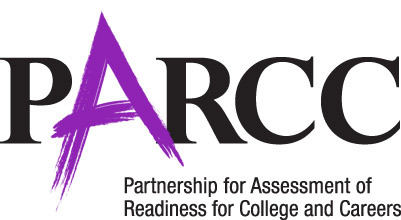

Every year all students in the state of Massachusetts dread sitting in uncomfortable desks in crowded rooms to take part in the Massachusetts Comprehensive Assessment System, also known as MCAS. However, the Massachusetts Department of Education is making some changes that should provide relief to these students. Scheduled to start in the 2014-2015 school year, all students through the twelfth grade will partake in a new assessment system called the Partnership for Assessment of Readiness for College and Careers, or PARCC.
Unlike the environment for MCAS — where students gather in the gymnasium and are forced to sit in unstable, uncomfortable, potentially squeaky “MCAS’ desks that do not even provide enough space to lay out all of the heavy test and answer booklets— the PARCC assessments allow students to take the exam in a more comfortable, classroom with regular-sized desks where they will be able to focus and stay concentrated.
In addition to the change of environment, the scope of this exam is also much larger. MCAS is a state-level exam that tests students only based on statistics according to the students in Massachusetts. This way, the tests are designed differently and may be more difficult than other states’ exams. However, the PARCC assessment is a national-level exam which means that all students in all states of the country will take the same exam and will be assessed equally against students from another state.
Also, while the MCAS assesses Reading, writing, math, and biology, the PARCC assessments focus only on two areas of education: Literacy and English Language Arts, and Mathematics. In addition to the writing and reading assessed on the MCAS exams, PARCC includes listening and speaking within the English portion of the exams and also includes mathematical arguments in the mathematical portion of the exams.
The PARCC assessments will be entirely computer-based and will use technology in a variety of ways. By using technology for the assessments, the scoring will be more efficient, reduce paperwork, increase security, and reduce shipping and receiving storage. Using technology would also be much cheaper than the regular MCAS exams because there is less shipping, paper, and writing utensils being used. The technological assets of the exams will also produce much more timely results and reports of students’ performances throughout the year to inform instruction, interventions, and professional development. Although forcing all students to take these exams on computers will be a major difficulty for school systems, the PARCC exams will ultimately provide a more timely and efficient way to assess the students’ abilities.
The idea of the PARCC assessments was first introduced in 2010 and the development then began in 2011. This year, the departments of education in many states are beginning their first year of field testing, which includes related research and data collection. Next year, there will be a full administration of PARCC assessments. By the Summer of 2015, the assessments will allow administrators to have a basis and collection of data and results to compare scores of students across the country. As of right now, the states taking part in the PARCC assessments are Arizona, Arkansas, Colorado, District of Columbia, Florida, Georgia, Illinois, Indiana, Kentucky, Louisiana, Maryland, Massachusetts, Mississippi, New Jersey, New Mexico, New York, North Dakota, Ohio, Oklahoma, Pennsylvania, Rhode Island, and Tennessee.
If school systems can navigate the potentially expensive implementation of this computer-based assessment, the Partnership for Assessment of Readiness for College and Careers should be an improvement from the Massachusetts Comprehensive Assessment System. Within a few years, the discomfort once felt by students packed in a common space for a written test will be as obsolete as doing complex mathematics without a calculator.
